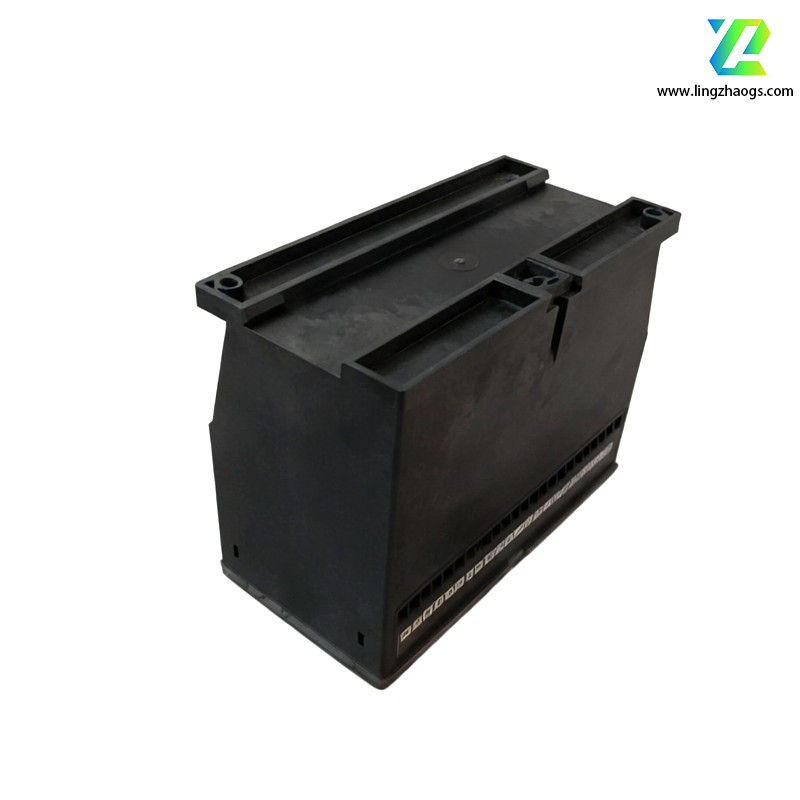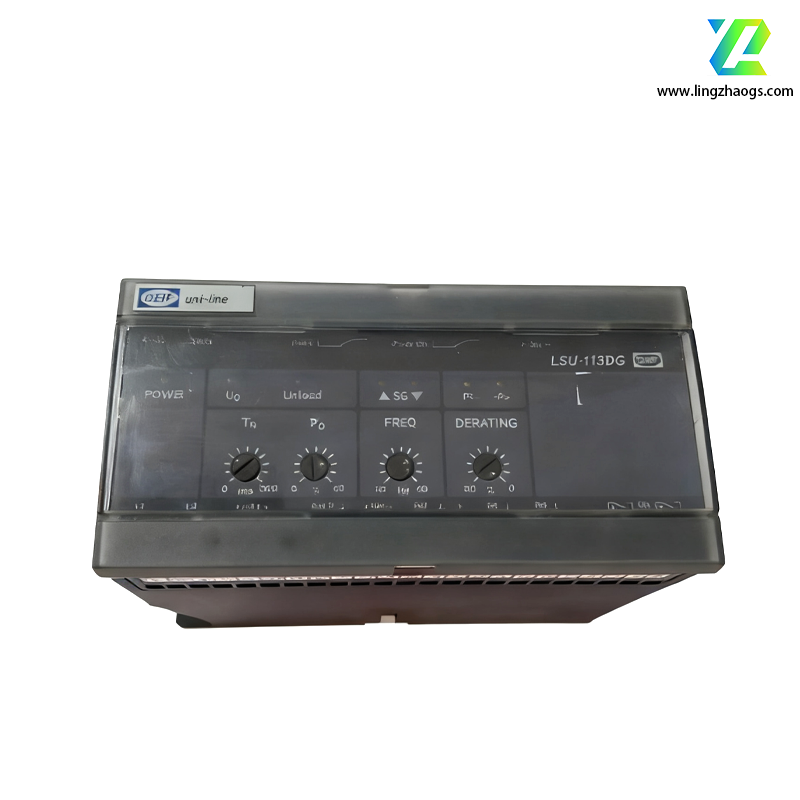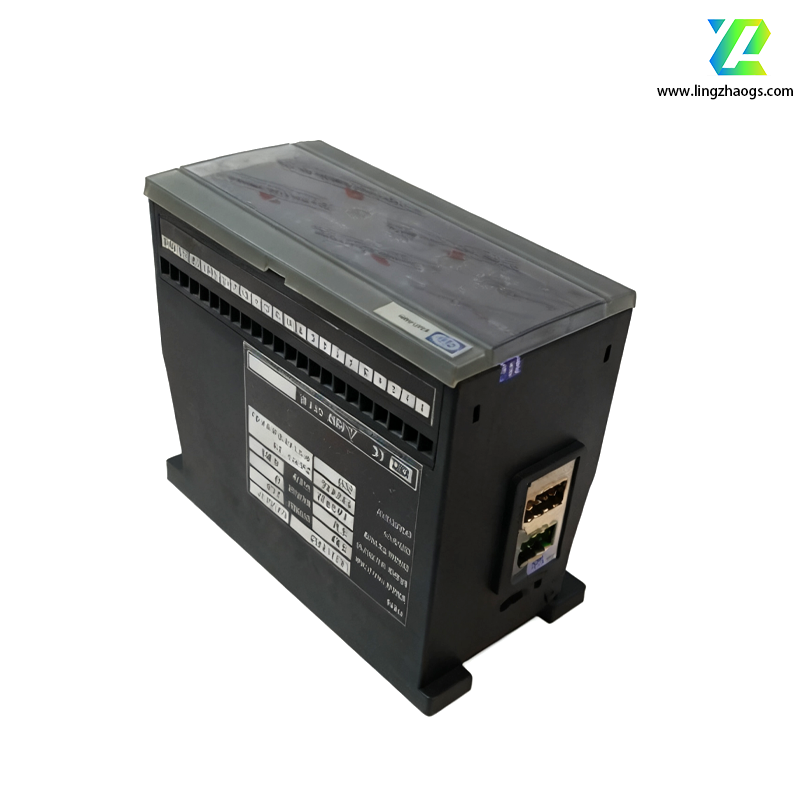Here’s a detailed overview of DEIF LSU-113DG (DEIF A/S part number) based on industrial power system references, third-party distributor data, and DEIF’s core focus on genset control and power management solutions. As a specialized sensor interface module, this part aligns with DEIF’s offerings for diesel genset monitoring in marine, industrial, and backup power applications. For official specifications, consult DEIF A/S directly.
- Brand: DEIF A/S (a global provider of power control, monitoring, and automation solutions)
- Model: LSU-113DG
- Type: Lubricating Oil Pressure & Temperature Sensor Interface Module
- Industry: Marine (merchant ships, offshore vessels), power generation (diesel gensets), industrial backup power, and emergency power systems.
- Function: Acts as a dedicated interface between DEIF genset controllers (e.g., DGC-2020, DGC-300) and analog sensors measuring lubricating oil pressure and temperature in diesel engines. It converts raw sensor signals into standardized data for the controller, enabling real-time monitoring of critical engine lubrication parameters. The module also triggers alarms or shutdowns via the controller if parameters exceed safe thresholds, protecting the engine from damage due to low oil pressure or overheating.
Dual Parameter Monitoring
- Specialized in two critical engine parameters:
- Lubricating Oil Pressure: Accepts signals from pressure transducers (typically 4–20 mA or 0–10V) to monitor oil pressure in the engine’s lubrication circuit.
- Lubricating Oil Temperature: Interfaces with temperature sensors (RTD: PT100/PT1000; Thermocouple: Type K/J) to track oil temperature, a key indicator of engine health.
- Dedicated channels for each parameter ensure independent, reliable measurement without signal cross-interference.
Signal Conditioning & Isolation
- Integrates signal conditioning circuits to filter noise and stabilize raw sensor outputs, ensuring accurate data transmission to the genset controller.
- Provides galvanic isolation (500V AC) between sensor inputs, module power, and controller communication lines. This prevents ground loops and electromagnetic interference (EMI/RFI) common in engine room environments.
Plug-and-Play Compatibility with DEIF Controllers
- Designed for seamless integration with DEIF’s genset control systems. It is automatically recognized by DEIF’s configuration software (e.g., DEIF PC-Tool), eliminating the need for complex manual programming.
- Uses standardized wiring harnesses (compatible with DEIF controller terminal blocks) to simplify installation and reduce setup time.
Rugged Design for Engine Room Environments
- Built to withstand harsh conditions typical of diesel genset installations:
- Resistant to vibration (compliant with IEC 60068-2-6) and shock (IEC 60068-2-27), ensuring durability near running engines.
- Protected against oil mist, dust, and moisture (common in engine rooms) via a sealed enclosure.
Electrical Parameters
- Power Supply: 24V DC (nominal, standard for DEIF genset modules), with a tolerance range of 18–32V DC to accommodate voltage fluctuations in genset power systems.
- Power Consumption: ≤3W (low power draw, minimizing load on the genset’s electrical system).
- Input Channels:
- Oil Pressure Input: 1 channel (4–20 mA current signal; compatible with pressure transducers up to 60 bar).
- Oil Temperature Input: 1 channel (RTD: PT100/PT1000, 2/3/4-wire; Thermocouple: Type K/J — verify with DEIF for exact compatibility).
- Output Signal: Digital data via DEIF’s proprietary interface or Modbus RTU (RS-485) to connected genset controllers.
Physical & Environmental Attributes
- Form Factor: Compact DIN-rail mount design (dimensions estimated: 60 mm × 100 mm × 35 mm), optimized for installation in small genset control cabinets.
- Environmental Ratings:
- Operating Temperature: -25°C to +70°C (suits extreme climates, from cold storage facilities to hot engine rooms).
- Humidity: 5–95% (non-condensing), resistant to moisture in marine or industrial settings.
- Ingress Protection (IP): IP20 (when mounted in a control cabinet) — suitable for protected indoor installations.
Accuracy & Performance
- Pressure Measurement Accuracy: ±0.5% of full scale (ensures precise detection of low oil pressure conditions).
- Temperature Measurement Accuracy: ±0.3°C (for PT100 RTDs) or ±1.5°C (for Type K thermocouples) — critical for early detection of overheating.
- Response Time: <100 ms (fast signal processing to trigger timely alarms for sudden pressure/temperature drops/spikes).
- Diesel Genset Monitoring:
- Primary application: Interface for lubricating oil pressure/temperature sensors in DEIF-controlled diesel gensets (used in data centers, hospitals, and manufacturing plants for backup power).
- Enables the genset controller to monitor oil health and initiate protective actions (e.g., reduce load, shut down engine) if parameters fall outside safe ranges.
- Marine Engine Lubrication Control:
- Used in marine diesel engines (merchant ships, offshore vessels) to track lube oil conditions, complying with marine safety regulations (e.g., SOLAS) that require continuous engine parameter monitoring.
- Industrial Diesel Engines:
- Integrates with DEIF controllers for stationary diesel engines in oil & gas pipelines (pump stations) or mining operations, ensuring reliable lubrication system performance.
- Condition: Available as new OEM (through DEIF A/S or authorized distributors) or genuine refurbished (via specialized industrial automation suppliers, e.g., Marine Controls, Power Systems International).
- Warranty: 24-month warranty for new units (standard for DEIF products); refurbished units typically include a 12-month warranty.
- Documentation:
- Technical datasheets, wiring diagrams, and sensor compatibility guides are available to DEIF customers via DEIF’s customer portal.
- Third-party distributors may provide application notes for pairing the module with specific DEIF genset controllers.
- Compatible Systems:
- DEIF Genset Controllers: DGC-2020, DGC-300, DGC-150, and DGC-600.
- DEIF Power Management Systems (PMS): PMS 300, PMS 400 (when integrated with genset subsystems).
- Standard lubricating oil sensors: 4–20 mA pressure transducers, PT100/PT1000 RTDs, and Type K/J thermocouples.
- Similar DEIF Models:
- DEIF LSU-112DG: Dual-input module for engine coolant temperature and oil pressure (alternative parameter combination).
- DEIF LSU-200: Multi-sensor interface module (supports 4+ parameters, e.g., oil pressure, temperature, fuel level) for larger diesel engines.
- Setup Requirements:
- Mount on a standard DIN rail in the genset control cabinet, as close to the lube oil sensors as possible to minimize wiring length (reduces signal noise).
- Configure via DEIF’s PC-Tool software to calibrate sensor inputs, set measurement ranges (e.g., 0–50 bar for pressure, 0–150°C for temperature), and map outputs to the genset controller.
- Wiring Guidelines:
- Use shielded, twisted-pair cables for sensor connections to minimize EMI interference from genset electrical components (e.g., starters, alternators).
- For RTD sensors, use 3/4-wire wiring to eliminate lead resistance errors, ensuring accurate temperature measurement.
- Ground the cable shield at the module end only to avoid ground loops.
- Safety & Troubleshooting:
- Follow lockout-tagout (LOTO) procedures when wiring or servicing the module — incorrect sensor signals can disable engine protection functions.
- Use built-in LED indicators to diagnose issues:
- Green LED: Normal operation (power and signal detected).
- Red LED: Sensor fault (e.g., open-circuit RTD, shorted pressure transducer).
- Amber LED: Signal out of range (warning before alarm threshold).
- For sensor faults, use a multimeter to verify sensor continuity and output signal; common issues include damaged sensor wiring or failed transducers.
- Model Specialization: The LSU-113DG is dedicated to lubricating oil pressure and temperature — it cannot be reconfigured for other parameters (e.g., fuel pressure, exhaust gas temperature). For other sensor types, use DEIF’s multi-parameter LSU models.
- Sensor Compatibility: Confirm sensor type (RTD vs. thermocouple) and signal range with DEIF before installation. Mismatched sensors (e.g., Type T thermocouple with a module calibrated for Type K) will produce inaccurate readings.
- Genuine Parts Recommendation: Use genuine DEIF LSU-113DG modules for genset safety. Aftermarket alternatives may lack signal isolation or calibration accuracy, risking incorrect engine protection and potential equipment damage.
For further technical assistance, contact DEIF A/S’s global support team or your local authorized service provider. Always validate specifications against your genset’s sensor type and controller compatibility before installation.





